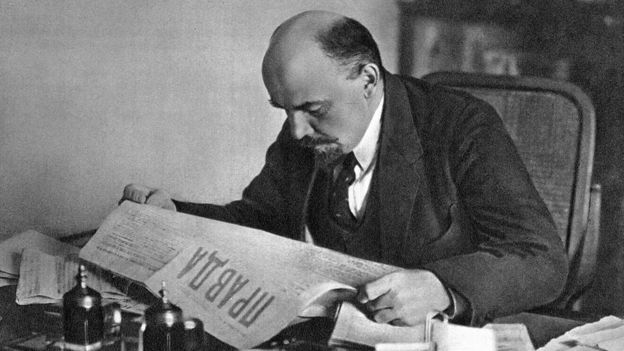Some valuable practical detail in BTL comments after that last post - very much what I had in mind when writing "very real practical complexities around our simplified account above - which might have made for a genuinely interesting & informative Countryside piece." Let's take a look at the issues they raised, & some more that I'm chucking in for good measure.
1. The ability to hedge, even in principle. (A) Scale. Jim has suggested the threshold for being able to get into grain futures is 10,000 acres. There will always be a lower limit (although with spread betting and ETF, that's been getting lower and lower) and certainly I have no better data. And why shouldn't there be a minimum size / critical mass for any particular viable line of business? We scorn the pitifully small energy suppliers (well, I do) for their lack of capitalisation, and wonder WTF they got a supply licence from Ofgem in the first place. Why shouldn't some industries be for the competent Big Boys? Nobody has a God-given right to set up a "craft" blast furnace just because they fancy.
1(B). Credit. - maybe thought of as an aspect of 1(A), but it's a distinct issue. It's always the case that a non-creditworthy counterparty (however large) can't get an OTC forward contract. That's because payment may become due either way, & maybe they ain't good for the potential monies due. Of course, if you're trading on an exchange (futures), you'll need to put up collateral and pay ongoing margin (if your position is moving out of the money) to minimise the credit risk. That again may exclude some players if they can't put up the table money. Again - so what?
2. Weather. As raised by a couple of you. Yep, this is one of the 'operational risks' that actually has little directly to do with hedging the financial exposures involved (though see 3. below on volume & Basis). Weather risk will impact on farmers irrespective of market risk - it can impact adversely on timing, quantity and quality. There was a time, in the late '90s / early '00s, when lots of people believed a big market was going to develop that would offer 'weather derivatives', there seemingly being a vast potential range of applications for such products. It never really took off (for reasons we might discuss in another post), despite many big players putting in a lot of time, money, people & effort go get it going. So: as was mentioned BTL, insurance always was, and remains, the first recourse.
Insurance, BTW, should always be anyone's fallback if they can't get a satisfactory hedge - and not just for weather, and not just for farmers . No credit issues, except that naturally you need to be able to afford the premium upfront. I say 'no issues' but of course as the client, you always have concerns over the creditworthiness of the insurance provider. it's a heavily regulated sector, for that reason.
3. Volume. (Also mentioned BTL.) Being subject to several unknowns - weather being perhaps the biggest - how does the farmer know exactly how much by volume to be trying to hedge? This volumetric uncertainty is an intrinsic feature of some sectors, while virtually unknown in others. The answer, as far as it goes, is easy: pick a sensible, maybe conservative estimate, and hedge that. You're then exposed on the balance, be that long or short. Coupled with weather insurance, it's the best you can do.
4. 'Basis Risk' generally. In markets where volumetric risk is small (& hence not requiring a whole risk-management discipline of its own), it would be viewed as a subset of the more general category of 'Basis Risk' - where there's an element of exposure remaining even when you've hedged the best that anyone can. It can arise from a heap of different factors impacting the 'basis' of your hedge vs the basis of your own situation, e.g.:
- the forward / futures contracts are only traded in lot sizes that don't allow you to create a perfect volume match;
- the settlement of the traded forward / futures is at a location and/or date that doesn't perfectly match your own locational / timing situation;
- the settlement is for a quality or grade of product that doesn't perfectly match that of your own product (e.g. a very special grade of oil for which there is no specific forward contract).
That last point - quality - was indeed specifically raised in the Countryfile prog - about the only interesting thing that was aired. They said that weather could affect what type of grain the crop would turn into, in terms of how it would be viewed - and priced - in the market. I hadn't known that, but it makes perfect sense.
* * * * *
To my mind the Countryfile team should have been at least mentioning some of the above, just as they very fairly (and in an easily-understood manner) alluded to the Basis risk of the quality uncertainty. It's the job of TV to make these things accessible, and the whole of it is no more difficult than the quality point.
Finally, though, we get to Sobers' really interesting - and quite technical - comment that, courtesy of outrageous hanky-panky on the part of the hedge-providers, for the farmer to enter a forward / futures contract they are in practice writing a naked option. If that terminology doesn't mean anything to you, well (a) I think Sobers explained the essence of the problem well enough, in lay terms; and (b) writing a naked option is about the most dangerous thing you can do in financial trading.
As many of you will know, agriculture isn't my sector. I've already noted that small players needn't expect to find things just as they'd like them in any sector, so maybe this is really just another manifestation of 'too small'. That said, to me it's a pretty shocking matter when, within an industry where quality matters so much, there aren't objective standards and assays that can be relied upon for both parties. The whole of trade finance depends on it. WTF should agriculture be different to energy, or metals, or pharma? Yes, fraud happens in any industry, but what Sobers reports is daylight robbery & very depressing. Is it really a problem for bigger farmers? In principle there would, IMHO, be a huge opportunity for large, honest players to step into this situation charging a very modest premium for a proper service.
ND









